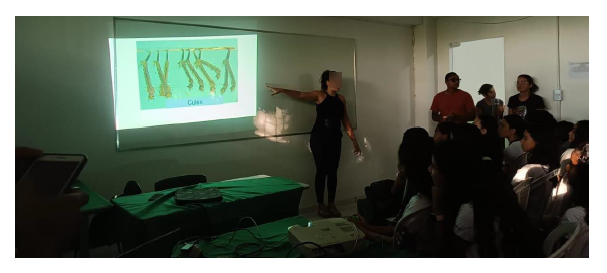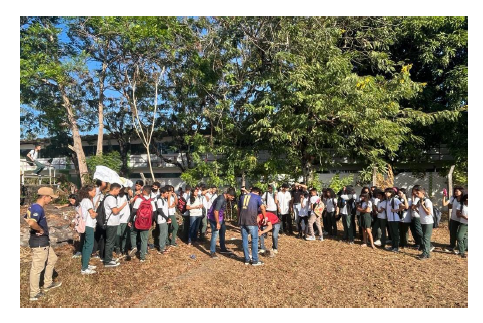Stars and STEM Stories
GLOBE Brazil: Monitoring Clouds, Identifying Mosquito Habitats, and Building Rockets
In Pinheiro, a city in the state of Maranhão, Brazil, the Unidade Mais Integral Instituto de Educação de Pinheiro school had the opportunity to participate in a transformative GLOBE project. This project was a chance to connect science with local challenges, such as climate change and public health, and to engage students in practical activities that went beyond the classroom. The project was led by Professor Yallana Marinho with help from students from the Fisheries Engineering program at the Federal University of Maranhão (UFMA) who acted as mentors to the younger students.

At first, I had a bit of difficulty using the app, but then it became easy. I didn’t know that using the app allowed us to monitor the weather and relate it to climate events and how climate change influences the appearance of mosquitoes and diseases like dengue. And the coolest thing about all of this is that we share the data we collect here with the whole world. I loved being a scientist. —Student

In addition to environmental monitoring, the project offered a hands-on rocket-building workshop. Students were divided into groups to build PET bottle rockets (see image at right), learning concepts of physics such as aerodynamics and propulsion in an engaging and fun way. These activities stimulated the students' interest in science and technology, providing an interdisciplinary experience that integrated theoretical learning with creative practices.
One of the UFMA mentor students also shared the rewarding experience of participating in the project:
It was amazing to see students' excitement with each activity. Many had never had the opportunity to observe mosquito larvae through a microscope or build a rocket. Seeing their enthusiasm and knowing that they are contributing to citizen science was extremely rewarding. —UFMA student mentor
This project exemplifies the power of collaboration between schools, universities, and communities in collecting meaningful scientific data. In addition to educating the next generation about the importance of science and sustainability, the project reinforces GLOBE’s mission to inspire future scientists and engage citizens worldwide. By applying GLOBE protocols in a practical and effective way, students in Pinheiro are directly contributing to the global citizen science network, demonstrating that scientific knowledge can be a powerful tool for promoting social and environmental change.
Watching the students put into practice the concepts they learn in the classroom is one of the greatest benefits of this project. For me, these experiences help promote a sense of responsibility and belonging among the young people, showing them that even in a small town like Pinheiro, their actions can have a significant impact.” —Professor Yallana Marinho





